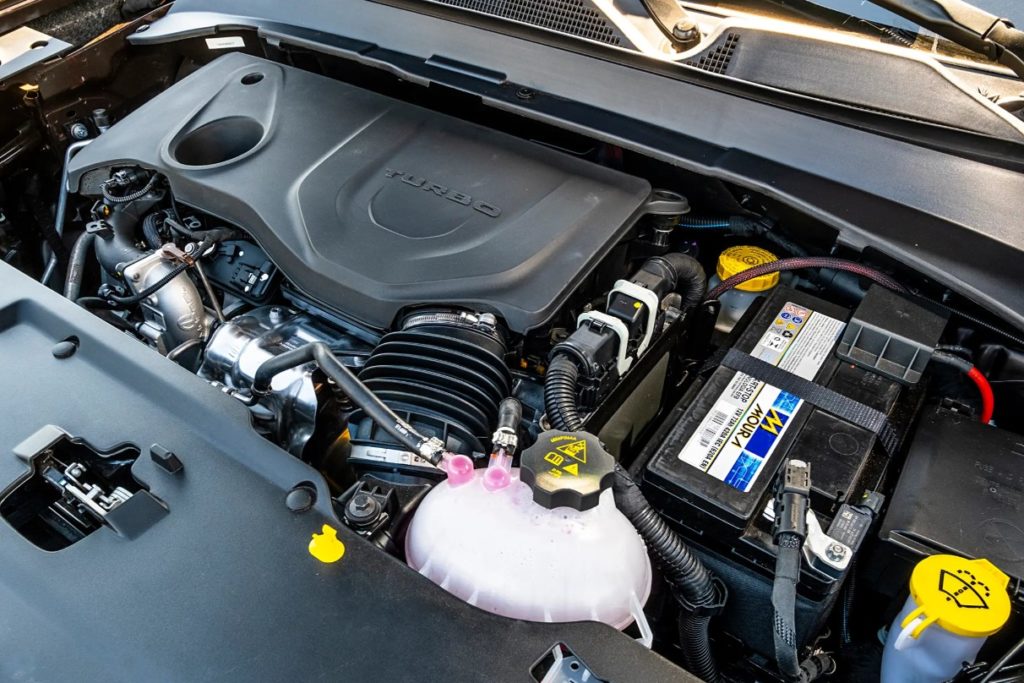Jeep Compass 1.3 Turbo: Baixa de Óleo
Ads
O Jeep Compass 1.3 Turbo tem sido objeto de um longa duração realizado pela Quatro Rodas.
Onde o veículo é testado em condições reais, seguindo todas as revisões e analisando seu desempenho ao longo do tempo.
Ads
Neste artigo, vamos explorar os principais pontos levantados durante os primeiros 50.000 km desse veículo, incluindo o consumo de óleo elevado do motor, o barulho irritante dos pneus e questões relacionadas à revisão na concessionária.
Vamos mergulhar nessa emocionante jornada!
Consumo de óleo do motor do Jeep Compass 1.3 Turbo:

Uma das primeiras preocupações que surgiram durante o teste foi o consumo de óleo do motor.
O Jeep Compass 1.3 Turbo utiliza um óleo da marca Mopar, fornecido pela Shell, e o manual do veículo indica que é tolerável um consumo de até um litro de óleo a cada 2.500 km.
No entanto, alguns relatos de proprietários indicavam um consumo excessivo de óleo, levando a problemas de lubrificação e, em alguns casos, à troca completa do motor.
Durante o teste de longa duração, a equipe da Quatro Rodas também observou um consumo significativo de óleo nos primeiros 12.000 km do veículo.
A primeira revisão foi feita aos 12.000 km, e nesse período o motor já havia consumido 300 ml de óleo.
A concessionária responsável pelo serviço alegou que o consumo estava dentro dos padrões e ofereceu a reposição gratuita do óleo quando necessário.
Para controlar a situação, a equipe passou a acompanhar regularmente o consumo de óleo e até mesmo carregava um litro de reserva no porta-malas.
No entanto, após uma atualização do módulo do motor, fornecida pela concessionária, o consumo de óleo foi normalizado e se tornou mínimo. Essa atualização eletrônica parece ter solucionado o problema, evidenciando que não se tratava de uma falha mecânica, mas sim de um ajuste necessário.
Desempenho e atualização do motor Jeep Compass 1.3 Turbo:
O Jeep Compass 1.3 Turbo apresenta um motor mais potente em comparação à versão anterior, com 185 cavalos de potência e um torque maior.
No entanto, após a atualização do módulo do motor, realizada durante a segunda revisão, foi observada uma redução no desempenho.
O tempo de aceleração de 0 a 100 km/h aumentou de 9,9 para 10,1 segundos, e o consumo de combustível também foi ligeiramente afetado.
Apesar dessa piora no desempenho, é importante ressaltar que o consumo de óleo foi normalizado após a atualização, indicando que o ajuste eletrônico teve um efeito positivo nesse aspecto.
É válido mencionar que a redução no desempenho pode ser resultado de uma mudança no comportamento da bomba de óleo, que passou a regular a pressão de forma mais eficiente.
Outros problemas e questões:
Durante o teste de longa duração, o Jeep Compass apresentou outros problemas menores, como a queima da bomba de combustível aos 46.000 km, que exigiu a intervenção da concessionária.
Além disso, houve falhas eletrônicas, como a do dimmer, responsável pela regulagem do brilho das telas e das luzes dos botões, que acabou afetando a iluminação do painel.
Também foram registrados problemas com a bateria da chave presencial e a necessidade de troca do para-brisa devido a uma rachadura causada por uma pedra na estrada.
Outro ponto de preocupação foi o ruído irritante dos pneus, especialmente quando o veículo atingia velocidades entre 80 e 90 km/h.
Foram realizadas investigações, incluindo a troca de pneus e rolamentos, mas o barulho persistiu. A análise da fabricante dos pneus, Pirelli, indicou que não havia defeito de fabricação e sugeriu que o problema poderia estar relacionado a um uso inadequado ou falta de manutenção.
No entanto, a equipe de testes seguiu todas as recomendações de manutenção, como alinhamento, rodízio e calibragem corretos.
Conclusão:
O Jeep Compass 1.3 Turbo passou por diversas situações desafiadoras durante o teste de longa duração, incluindo o consumo elevado de óleo do motor, problemas eletrônicos e ruído dos pneus.
No entanto, é importante destacar que muitos desses problemas foram solucionados por meio de atualizações do módulo do motor e acompanhamento cuidadoso dos componentes.
Apesar das adversidades, o veículo mostrou-se resistente e capaz de superar esses obstáculos.
Como em qualquer teste de longa duração, é essencial lembrar que esses problemas podem variar de veículo para veículo, e a experiência de cada proprietário pode ser diferente.
No entanto, essas informações fornecem um panorama geral do desempenho e dos problemas potenciais do Jeep Compass 1.3 Turbo, permitindo que os consumidores estejam cientes dos aspectos a serem observados ao adquirir esse veículo.
Este Artigo foi escrito baseado nas informações obtidas do teste feito pela Quatro Rodas.







A questão do consumo de óleo no meu renegade não foi resolvido com ajuste eletrônico e a última atualização seria a troca do motor, o que eu não aceito, por esse motivo estou resolvendo na justiça e acredito que o que Jeep está fazendo vai fazer com que ela tenha o mesmo fim da Ford, total descredibilidade. Estou com um carro alugado pela Jeep, obrigada pela justiça enquanto rolar o processo. Acho que o grande temor seja que processos como esses gerem jurisprudência e milhares de pessoas possam requerer seus direitos de consumidor e não pagar 150 mil por um carro com sérios vícios de fabricação.
Tenho um Compass 2022
Ele consumia óleo, na primeira revisão foi feita atualização e problema resolvido
O dimmer da luz do painel também deu problema e foi trocado em garantia.
Com relação a ruído dos pneus o carro não tem
Wylersson, torcemos para que a Jeep resolva seu problema o quanto antes, depois nos conte como ficou o desenrolar desta historia.
Marcio, obrigado pelo feedback.
Tenho uma Toro com esse motor 1.3 , fiz a primeira revisão com 4.500km e assim que saí da concessionária percebi que o consumo tinha aumentado. Na segunda revisão no mês 8 de 2023 a Toro saiu da concessionária com um consumo maior que no anterior e 30 dias depois parou de funcionar.
Segundo a concessionária falou que era ( Bomba de Alta pressão) e não foi trocado a Bomba, fizeram atualização. Eu fiquei sem entender?
Sim, realmente houve um (recall).
A Fiat convocou os donos dos modelos Toro e Pulse de ano/modelo 2022 e 2023, e Fastback 2023, para um recall. O problema estava na bomba de combustível dos motores turbo 1.0 (T200) e 1.3 (T270).